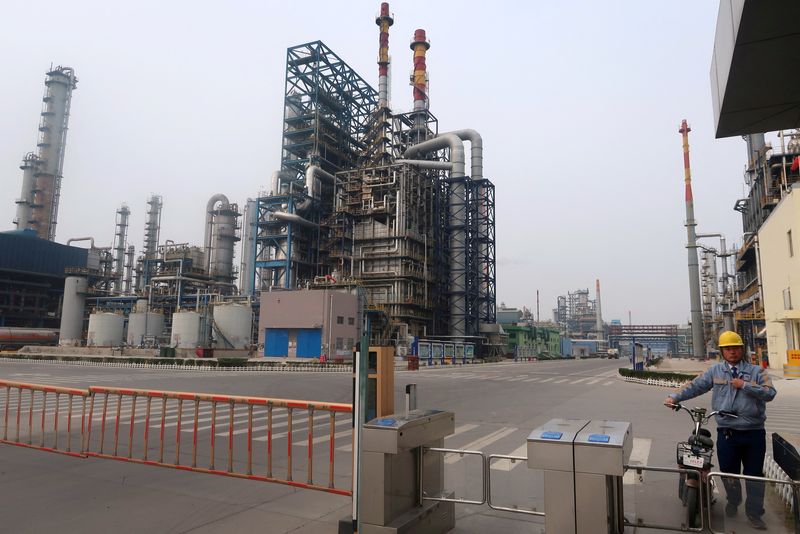Select Language

By Chen Aizhu and Siyi Liu
SINGAPORE (Reuters) -China faces a squeeze on supplies of cheap Iranian crude, which make up about 13% of imports by the world's biggest buyer of oil, if Donald Trump ramps up enforcement of sanctions on Tehran after his return as U.S. president in January.
Trump, who won Tuesday's election, Edison Research projected, is expected during his second term to re-impose his "maximum pressure policy" of heightened sanctions on Iran's oil industry over concerns about its nuclear programme, say Iranian, Arab and Western officials.
Such a move would raise the cost of China's imports, piling pressure on a refining sector grappling with weak fuel demand and tight margins, with independent plants known as teapots set to be hit especially hard.
"A Trump victory may see the United States enforce sanctions against Iran, thereby reducing Iranian oil exports and prompting oil prices higher," Vivek Dhar, a commodities strategist at Commonwealth Bank of Australia (OTC:CMWAY), said in a note.
In 2018, during his first White House term, Trump reinstated sanctions on Iran, leading eventually to a halt in its oil exports to India, Japan and South Korea.
Late in 2019, China's teapot refiners stepped in as buyers of discounted Iranian crude, filling a vacuum left by its state oil firms wary of U.S. sanctions, saving billions of dollars, and cementing China's status as Tehran's top oil market.
China and Iran have built a trading system that uses mostly Chinese yuan and a network of middlemen, avoiding the dollar and exposure to U.S. regulators, making sanctions enforcement tough.
At the same time, Washington has been reluctant to take steps that would remove supply from the global market in the wake of the Ukraine war, analysts say.
Vortexa Analytics, which tracks Iran's oil flows, estimated China's imports of Iranian oil at 1.4 million barrels per day during the first nine months of this year.
MORE MEASURES
Last month, Washington expanded sanctions on Iran, adding measures against so-called dark fleet ships that carry its oil, which has slowed Iranian oil flows from Malaysia to China, according to a teapot trading manager who deals in Iranian oil and declined to be named due to the sensitivity of the matter.
"Even ship-to-ship (STS) activities could be hit. So the worry is more on the shipping than on banking," he said, referring to the practice of transferring Iranian cargoes between ships to mask their origins.
Teapots, with some already operating at a loss, might be forced to cut runs further if stricter sanctions enforcement by Trump on Iran as well as Venezuela tightens supplies and further dampens margins, independent refiner sources said.
However, China's imports from Iran were up about 30% between January and October despite tighter sanctions, which have encouraged "dark fleet" shipping activity, said Vortexa analyst Emma Li.
"We may only see significant changes when other players, such as banks, are added to the list," she said.
Iranian oil is typically rebranded by dealers as originating from Malaysia, Oman or elsewhere to circumvent U.S. sanctions.
Beijing repeatedly defends its oil trade with Iran as legitimate and conforming with international laws.

